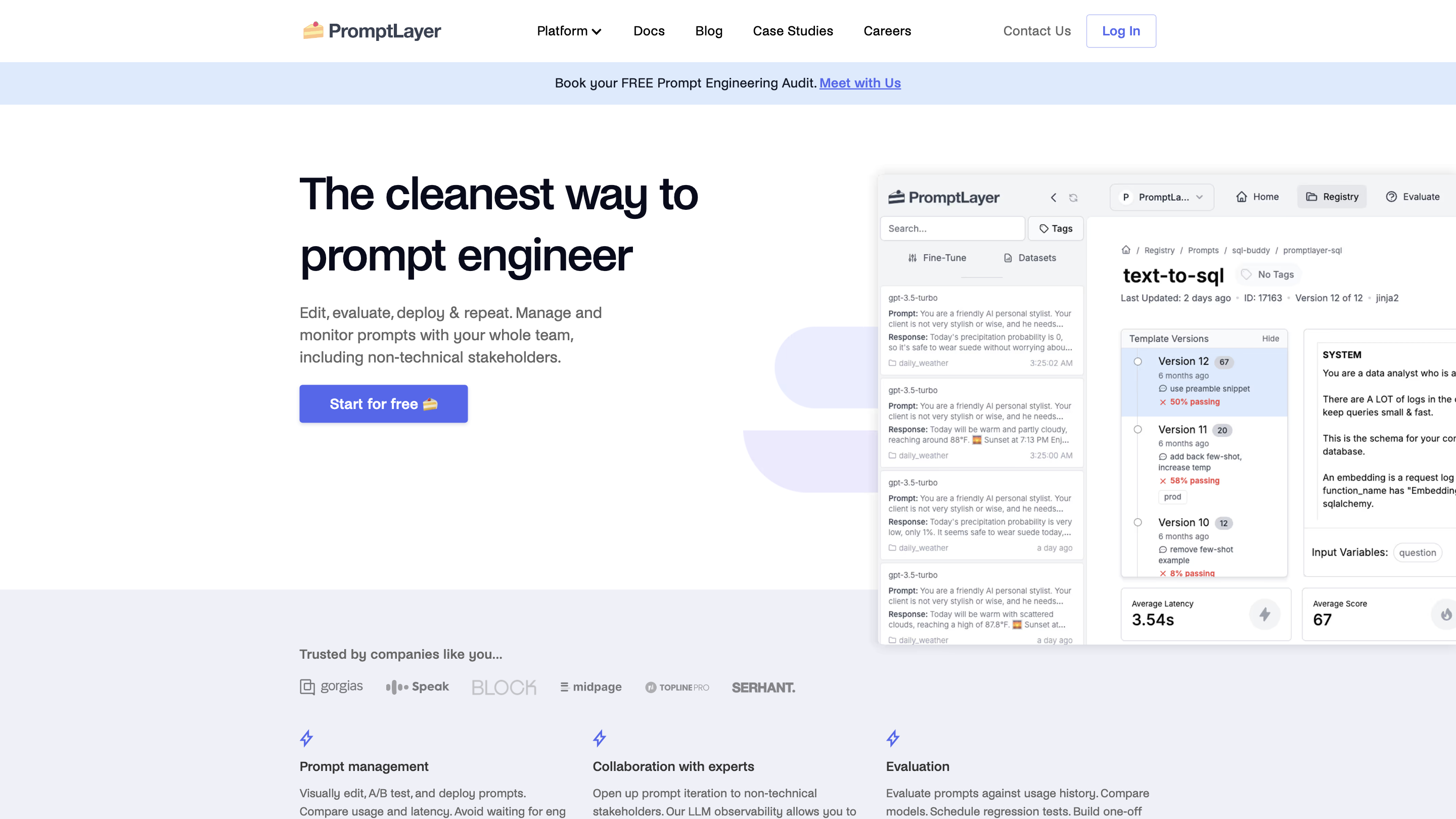PromptLayer
Open siteCoding & Development
Introduction
The first platform for prompt engineers to streamline the engineering process.
PromptLayer Product Information
PromptLayer: The cleanest way to prompt engineer
PromptLayer is a platform for prompt management, evaluations, and LLM observability. It enables teams to edit, evaluate, deploy, and monitor prompts with a focus on collaboration, non-technical participation, and end-to-end prompt lifecycle management.
How it works
- Visually edit, evaluate, and deploy prompts from a centralized Prompt Registry.
- Perform A/B testing and compare usage, latency, and model performance across prompt variants.
- Collaborate with non-technical stakeholders by sharing prompts, running evaluations, and iterating in a team-friendly environment.
- Leverage LLM observability to read logs, identify edge cases, and improve prompts over time.
- Run one-off batch jobs and historical backtests to validate prompts against historical data.
What you can do with PromptLayer
- Prompt management and collaboration with a CMS-style interface
- No-code prompt editor for quick edits and experimentation
- Versioned prompts: edit, diff, annotate, and roll back changes
- Deploy prompts to prod and dev environments with interactive publishing
- A/B test prompts and compare model performance
- Historical backtests to evaluate new prompts against past data
- Regression testing and automated evals triggered on prompt updates
- Model comparison to see how prompts perform across different models
- One-off bulk prompt pipelines for batch testing on inputs
- Usage monitoring and analytics without needing to jump between tools
- Privacy and security: SOC 2 Type 2 compliant
Why teams choose PromptLayer
- Collaborate with experts and non-technical stakeholders without sacrificing control
- Decouple prompt deployments from engineering releases
- Centralized prompt governance reduces scattered prompts across codebases
- Empowers product, marketing, and content teams to directly edit and test prompts
Core Features
- Visual prompt editor and CMS for non-technical collaboration
- Version control for prompts with diffing and notes
- Deploy prompts interactively to prod and dev environments
- A/B testing and metrics comparison (latency, usage, model performance)
- Historical backtests to validate prompts against past data
- Regression tests and one-off batch evals
- Model-agnostic prompt testing across multiple models
- Usage analytics and observability integrated in the dashboard
- SOC 2 Type 2 compliant privacy and security
